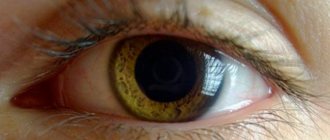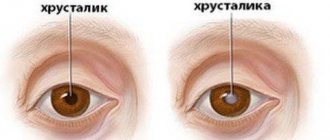A person usually speaks to convey his thoughts to others. If he stops doing this, to say that he will get bored is to say nothing.
Therefore, in case of any deviation in speech, you need to seek help from specialists in order not only to correct the situation, but also to avoid serious consequences. If this is not done in time, you may stop making certain sounds or stop speaking altogether, and this is much worse than when someone simply does not pronounce the sound “r”.
What speech disorders are most common in adults?
Speech problems do not only occur in children who are just learning to speak. For various reasons, adults who have been able to speak completely normally for decades may begin to lose their speech - in our clinic we are engaged in solving such problems.
Since adults have been talking for many years, most often their problems are associated with injuries or diseases that affect the brain, and with age the risk of developing such problems only increases. We treat aphasia and dysarthria - common speech disorders that arise precisely because of such situations.
Symptoms
Symptoms include:
- unusual vibration of the vocal folds, as a result of which the voice appears hoarse and becomes compressed;
- inability to quickly formulate your thoughts;
- problems with understanding the speech of others;
- violation of tempo: it can be accelerated or slowed down;
- violation of voice timbre;
- swallowing sounds, speech inhibition;
- syntactic violation;
- excessive speech activity that is not typical for the normal state;
- frequent repetition of the same words;
- stuttering, nasality.
What are the symptoms
In the case of aphasia, not only the speech of the patient himself is impaired - in addition, he may have difficulty distinguishing the speech of others and even what is written in the book. Here's what can happen with different types of aphasia:
It’s difficult and time-consuming to select words so that something coherent comes out, but this often still doesn’t work out, but individual words or constructions may acquire new meanings.
Some sounds and words are constantly replaced by others, rearranged and repeated. It starts with a seemingly harmless replacement of “b” with “p”, and ends with still incomprehensible combinations of words and sentences almost backwards. In some cases, such problems occur with written speech.
It's difficult to understand what other people are saying. In addition, the person does not seem to understand his own speech and pours out a stream of consciousness, and in the first two months after an illness or injury it can be a stream of random sounds or words.
The rhythm and melody of speech is disrupted, it sounds unnatural: pauses are too long, the voice is quiet, a half-whisper.
It is difficult to remember information you hear or read. Problems can arise with just four words in a row that are related in meaning. In such a situation, long sentences are difficult to understand, so they become meaningless.
It is difficult to name objects and use figures of speech, catchphrases, and proverbs. It is also difficult to understand them. How to treat and what will happen if you do not treat
Aphasia correction can only be done in a clinic. During correction, a person re-learns to speak correctly, as in childhood. With a speech therapist, he learns to perceive oral and written speech, correctly use the speech apparatus (respiratory organs, tongue, lips), and pronounce sounds.
Treatment may vary depending on the type of disorder, but in any case it is important to start it as early as possible. This is because a person gets used to his way of speaking, and speech defects become fixed. The patient may perceive some sounds instead of others, constantly repeat frequently used words and construct sentences incorrectly. If you delay in correcting aphasia, it will take even longer and more difficult to eliminate established disorders.
Structural and semantic design of speech
According to the structural and semantic design of speech, violations are divided into 2 types.
- Alalia is the absence or underdevelopment of speech due to organic damage to the central nervous system.
- Aphasia is a loss of speech due to local damage to the brain.
The first is typical for children, the second is most common in older people. Alalia occurs due to organic damage to the brain during fetal development or early childhood. Aphasia occurs due to local damage to the brain. The disorder appears after strokes and injuries.
What are the symptoms
Speech therapists distinguish four degrees of dysarthria, but even with the mildest of them, doctors cannot ignore:
- pronunciation disorders can only be identified by a speech therapist; in everyday speech they are hardly noticeable;
- impairments are noticeable to people around, but speech is still understandable;
- speech is understood only by people who are well acquainted with the patient, and by strangers who simply accidentally understand some phrases;
- even close people do not understand what the person is saying, if the sounds he makes can be called speech at all - this is severe dysarthria, or anarthria.
Of course, at each stage of the disorder the symptoms are different, but in general, with dysarthria, the entire articulatory apparatus becomes relaxed. Even if the muscles are tense, you don’t want to talk and you don’t do it very well. Here's what exactly is happening:
Speech is slurred, incomprehensible, slow. There is a feeling of “blurring” of everything that a person says, as if he has porridge in his mouth, he is trying to say something, but does not yet understand that it is almost useless.
The voice is quiet, weak, deaf, and breathing is rapid and intermittent. Because of this, speech becomes monotonous and it is difficult to speak clearly.
Some sounds fall out, some people pronounce through the nose (nasalization occurs, compare “n” and “b”), speech is basically simplified and it may seem that the patient is trying to pronounce a polysyllabic word in one syllable. Sounds are distorted and replaced by others, as in aphasia.
- Depending on the type of dysarthria, the tongue, lips, facial and neck muscles may work differently. In some cases they are constantly tense, in others they are too relaxed so that their mouth is slightly open. In addition, during a conversation, such overly relaxed muscles can suddenly tense up.
Why does it appear in adults?
In adults, the quality of pronunciation deteriorates for the following reasons:
- as a result of early brain injuries;
- for benign or malignant brain tumors;
- with Parkinson's disease;
- with multiple sclerosis;
- with Wilson's disease;
- as a result of alcohol abuse.
In these cases, changes in pronunciation are caused by organic damage to the brain and central nervous system.
Slurred speech may be caused by ill-fitting dentures. To fix the problem, it is enough to contact an orthopedic dentist so that he can correct the defects or make new impressions.
The problem may arise due to paresis of the facial muscles, which is a symptom of Millard-Jublay, Moebius syndrome, etc.
Very often the problem affects older people over 65 years of age who have been diagnosed with Alzheimer's disease. Changes in the brain lead to deterioration in the quality of pronunciation.
How to treat and what will happen if you don’t treat
First, the clinic’s specialists diagnose the degree of the disorder and determine what the problem is, and then carry out speech therapy work: they do finger, articulation and breathing exercises so that speech is synchronized with breathing, correct and reinforce the correct pronunciation of sounds, and work on the expressiveness of speech.
Just as with aphasia, it is important to start correcting dysarthria as early as possible. Speech defects become habitual, so the later you go to the clinic, the more difficult and longer it will be to restore articulation, and this is not an easy process - remember adults who have had a lisp since childhood or cannot pronounce the letter “r”.
Types of speech disorders
Some types of speech disorder include stuttering, apraxia, and dysarthria.
Stuttering
Stuttering refers to a speech disorder that is characterized by frequent repetition or prolongation of sounds or syllables or words. People who stutter may experience the following types of disruptions:
- Repetition occurs when people unwittingly repeat sounds, vowels, or words.
- Blocks arise when a person knows what he wants to say, but it is difficult for him to pronounce the necessary sounds. Blocks can make words feel stuck.
- Elongation refers to stretching or stretching out certain sounds or words.
Symptoms of stuttering can vary depending on the situation. Stress, excitement, or frustration can cause you to stutter more severely. Some people may also find that certain words or sounds can make their stuttering more pronounced. Stuttering can cause both behavioral and physical symptoms that occur simultaneously. These may include:
- tension in the face and shoulders;
- rapid blinking;
- lip tremor;
- clenched fists;
- sudden head movements.
Types of stuttering
There are two main types of stuttering:
- Stuttering, which manifests itself in children during the development of speech.
Genetic factors greatly increase the likelihood of developing this type of stuttering. - Neurogenic stuttering
occurs when brain damage prevents proper coordination between different areas of the brain that play a role in speech.
Apraxia
Apraxia is a general term that refers to a brain injury that impairs a person's motor skills and can affect any part of the body. Apraxia of speech
, or
verbal apraxia
, refers to a motor skill disorder that affects a person's ability to form speech sounds correctly, even when they know what words they want to say.
Cause of aproxia
The brain controls every action a person makes, including speech. Much of the brain's involvement in speech is unconscious and automatic. When a person begins to speak, the brain sends signals to various structures in the body that work together to produce speech. The brain instructs these structures how and when to move in order to form the appropriate sounds. For example, these speech signals open or close the vocal cords, move the tongue and shape the lips, and control the movement of air through the throat and mouth.
Dysarthria
Dysarthria occurs when damage to the brain causes muscle weakness in a person's face, lips, tongue, throat, or chest. Muscle weakness in these parts of the body can make it difficult to speak. People with dysarthria may experience symptoms such as:
- slurred speech;
- mumbling;
- speaking too slowly or too quickly;
- quiet or calm speech;
- difficulty moving your mouth or tongue.
Speech impairment - treatment
The type of treatment depends on the severity of the speech disorder and its cause.
Treatment methods:
- speech therapy exercises, which are aimed at familiarizing oneself with certain words or sounds;
- physical exercises aimed at strengthening the muscles that produce sounds.
Some treatment options for speech disorders:
Target selection
Choosing a goal involves practicing saying certain sounds or words. Examples include difficult words or sounds that cause speech problems.
Contrast therapy
Contrast therapy involves speaking pairs of words that contain one or more different speech sounds.
Speech-motor therapy
Speech motor therapy aims to improve muscle strength, motor control and breathing. These exercises can help people develop fluency so that their speech becomes smoother and sounds more natural.
Ear devices
Ear devices are small electronic devices that are placed in the ear canal. These devices can help improve speech fluency in people who stutter. Some ear devices play modified versions of the wearer's voice to make it seem like someone else is talking to them. Other ear devices produce noise that helps control stuttering.
Drug treatment
Some speech disorders can cause anxiety disorders. Stressful situations can cause anxiety, leading to significant symptoms of speech impairment. Anti-anxiety medications can reduce symptoms of speech disorders.
Causes of speech impairment
Causes of speech impairment may include:
- brain damage due to stroke or head injury;
- muscle weakness;
- damaged vocal cords;
- neurodegenerative diseases such as Huntington's disease, Parkinson's disease or amyotrophic lateral sclerosis (ALS);
- dementia;
- cancer that affects the mouth or throat;
- autism;
- Down syndrome;
- hearing loss.
Risk factors that may increase a person's chance of developing a speech disorder include:
- male gender;
- premature birth;
- low birth weight;
- family history of speech disorders;
- problems that affect the ears, nose or throat.











